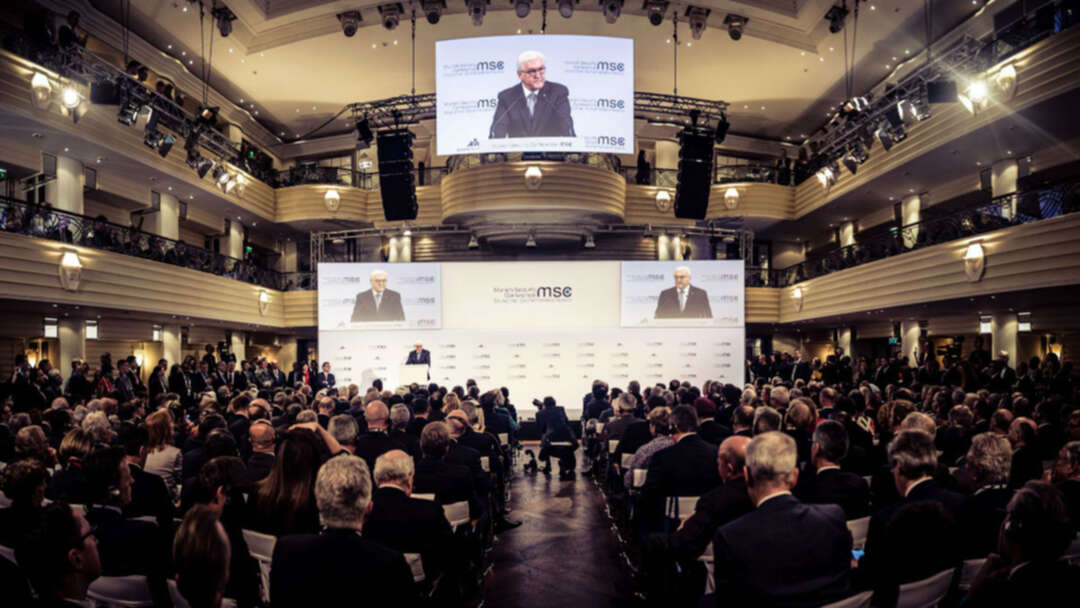-
Munich Security Conference 2020 Arab Disillusionment

After the Arab spring back in 2011, the political Islam was one of the loudest voices – today, more young people turn away from religion
They came late, but finally benefited from the change: While mass demonstrations faded away one authoritarian regime after the other back in 2011, the preachers were missing on the streets, who wanted to sort the societies with the supposed will of Allah. When the Ben Ali, Mubarak and Gaddafi regimes failed, those forces took power partially in Tunisia with the Islamist Ennahada, or totally like in Egypt, where the Muslim Brotherhood took over the presidency. Many experts stated „a decade of the political Islam.“
Nine years later, no-one is still claiming influence or power for this movement changing the region. Again, thousands demonstrate in the streets of Sudan or Algeria, but without any religious slogans. In Iraq and Lebanon young protesters chant to be fed-up with religious politics as they are with corruption. Many analysis underline the disillusionment of many societies between Maghreb and Mashrek concerning the postulate of „the solution is only Islam.“
Especially the young generation doubts the theory that the Islamic world is immune to any secular tendencies. The Arab Youth Survey, 3,300 young adults under the age of 24 from 15 Arab countries were interviewed, shows a dramatic shift in its 2019 report: two thirds state that religion has too much influence, whereas in the report 2015 only 50% agreed. Also, half of the participants underline the opinion that Islam is hindering a positive development in the Arab world.
The Arab Barometer from Princeton and Michigan University underline the numbers above, even within the older generations: the trust in theological authorties is decreasing. Only 40% have trust in religious leaders (in 2013 53%). The growth of those, who state not being religious and therefore breaking one of the region’s main taboos, seems to be small with 13% in 2019, compared with 8% in 2013. But looking at the statistics of the generations under 30, a different picture emerges: Today, 50% of young Tunisians, a third of the Lebanese and 20% of Egyptians say that religion does not play any role in their lives. In Turkey, where Erdogan announced „the education of a devouting generation“ in 2012, a renunciation can be monitored: the number of believers is decreasing, only 51% still agree being religious.
No secular age, but significant changes
In countries like Iraq, Lebanon or Bahrain with a high numbers of Shiite Muslims, survey participants with a Schiet background were represented. But in the most important Shiite country Iran, such a survey is impossible, because the political Islam is state doctrine. Experts in fact state that the Iranian population is turning its back from the religious dictate. One, probably urban phenomenon, might be that women question the cover-up doctrine. But at least it is a symptom for a change, even in a country like Iran.
Calling-out a secular age is still too early, especially having in mind that religion might become again important for the younger generation when they get older. But scientists like Michael Robbins from the Arab Barometer state that their data might be an indicator for „significant change in the upcoming years.“ Looking at the popularity of Islamist parties, many former facts start slippering: According to Arab Barometer a fifth of the Arab population still support them – 2013 35% did so.
But also in geopolitical terms, the political Islam seems to lose its grip. The long-lasting crisis between Shiites and Sunnis in the Gulf region an inner-sunni conflict became important: While Turkey and the Gulf states were acting as an „entente“ in the past concerning the conflict in Syria and supporting Islamist and jihadist rebels, they became enemies now.
Like Qatar, Erdogan’s Turkey is now openly supporting groups close to the Muslim Brotherhood. Those groups are non-democratic, but use democratic elections for gaining power in order to change the political system. Meanwhile, the monarchies in Saudi Arabia, the Emirates, who claim that Erdogan wants to invent a Neo-Ottoman empire, see those movements as a rival and opponent to their even non existing pseudo-democratic powers. For them, unlike to the ideology of the Muslim Brotherhood, religion serves only as a means for their ruling.
Started in Egypt, today in Libya, the Kurdish-controlled regions in Syria and in the Palestinian conflict both sides are trying to beat the opponent. Sometimes through diplomacy, sometimes with money and weapons delivery, sometimes by exporting militia. Instead of supporting the political Islam, the leading Sunni powers are containing each other. Does this in consequence mean a „decade of secularism“? „Allahu a’lam“ is a saying also used by many moderate Muslims. „Only God knows what is best.“
source : mena-studies.org
You May Also Like
Popular Posts
Caricature
opinion
Report
ads
Newsletter
Subscribe to our mailing list to get the new updates!






















